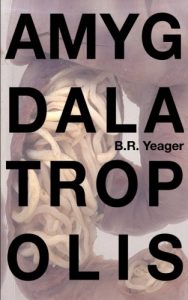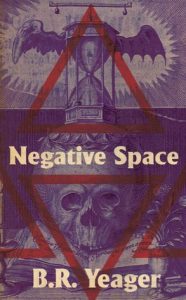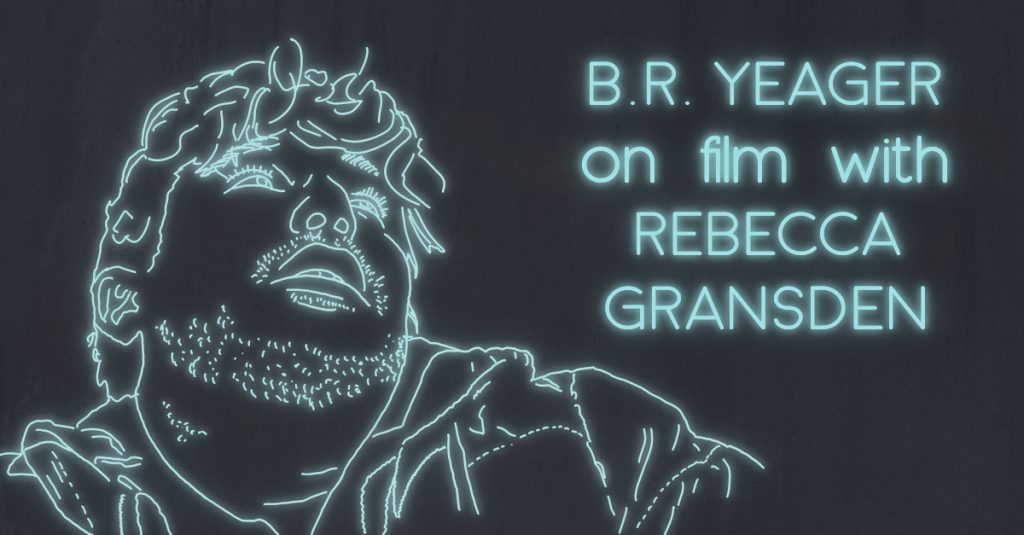What film, or films, made the first deep impression on you?
The first films I truly loved were incredibly basic, because I was a kid. And I was a blockbuster kid. I was obsessed with Aliens, Terminator 2, Jurassic Park, etc. And I still love those movies, even though they’ve long been replaced as my favorites. But I think the biggest mark they left on me was a love of grandiose scope and spectacle. There’s plenty to critique about those films with regard to emotional or intellectual complexity, but in terms of presenting a spectacular, grandiose vision they’re pretty impeccable. So they’re still a big inspiration—I’m often trying to marry emotional complexity and realism to a grand, mythic scale.
What films first felt transgressive to you? Do you remember being secretive about any films you watched growing up?
I’m not sure about transgressive, but the first film I encountered where I realized I was watching something supremely different was probably Welcome to the Dollhouse, which I saw not too long after it came out. I think it triggered my initial understanding of independent film, that there was such a thing as independent film, and that independent film was substantially different from what I was used to seeing. I remember thinking why does it look like that? Both the film quality and the actors—why does everyone look so fucked up? (i.e. like real people). Like I said, at the time my favorite films were the big blockbusters, so this was incredibly jarring. I kind of reeled from it at first, but it was so well done, so well-written and funny, I warmed up to it, and it’s become one of my favorites since.
There’s this film that no one has heard of that was extremely formative for me, called Slaughter of the Innocents. I first saw it on TV, late at night, when I was nine or ten. I had seen commercials for it, and knew it was about child murder, and that fact alone was so upsetting to me, but also incredibly compelling. I couldn’t stop thinking about it. It felt so crazy that there was this film called Slaughter of the Innocents that revolved around child killing—I had to see what it was all about.
It centers on this FBI agent who specializes in child murders. But the twist is that he’s been training his eleven-year-old computer-whiz son to be a forensics investigator. So this eleven year old kid is helping his father solve these grisly child murders, and no one around him bats an eye—not his mother, not the other FBI agents, no one. It’s treated as though it’s the most normal thing in the world. So the whole thing feels like a goofy kids’ movie like The Goonies or Home Alone that’s been folded into this bleak film about child murder. It’s absolutely bonkers. But revisiting it now, I can see how that aspect spoke to me at such a young age. It had many of the trappings of what I loved as a child—these kid adventure movies—paired with this terrifying story that felt very real and immediate. This was 1993, so it was the tail end of the satanic panic, the height of stranger danger, and there are all these stories about child abduction and sexual abuse and murder on the news and on talk shows. Slaughter of the Innocents is full-on pulling from all these anxieties, and as a child it felt so real. Watching it now, it’s goofy and campy, but at the time it felt intensely relevant and powerful.
I’m also now able to appreciate it as an incredibly non-traditional first brush with dark and transgressive themes in art. Most people’s first exposure is something generally recognized as a classic—Silence of the Lambs or Twin Peaks or something like that. For me it was this bizarre D-list rip off of Silence of the Lambs and Twin Peaks. But unlike most D-list ‘90s films that no one has ever heard of, Slaughter of the Innocents still kind of slaps. The acting, writing and direction isn’t terrible. It has a beautiful and eerie vibe. The entire thing feels as though it exists within a world that’s ending but no one realizes it yet—and if there’s one through-line between all my books it’s my attempt at trying to capture that feeling. So despite its obscurity it had a pretty enormous impact.
Can you talk about the influence film has had on your writing?
I’m influenced by film in a fairly unique way. I’d love to know if this happens with anyone else. Essentially: I watch a lot of good stuff but I also watch a lot of garbage. Sometimes I just want sound and image in front of me, and I’m pretty easily entertained. And often I find so much inspiration in the dumbest shit. I’ll be watching something like Detective Pikachu, and there might be a little visual gag, or an offhand remark played as a joke—and I’ll think “What if we took that gag seriously, and played it out to its most logical conclusion?” That sometimes becomes the foundation for a scene, or a character, or an entire story.
Earlier this year when my wife and I were dealing with the side effects from our second vax dose, we threw on the Shrek movies. And no joke, a brief gag in Shrek 2 ended up inspiring the premise for my next novel. The novel will in no way read like something inspired by Shrek 2—it’s this quiet, mournful drama—but I’m almost completely certain that if I hadn’t been watching Shrek 2 I never would have gotten this idea.
I think the way this works is that “good” or “serious” films (however you want to qualify that) tend to be fully realized artistic visions. They’re already taking their premises seriously and playing them out to their most logical conclusions. At the same time, they’re also giving you less to build with. Like, there’s not really anything I would try to change or improve upon with something like The Piano Teacher. There could be structural elements I borrow from great art, but less so with regard to content.
But “bad” movies (or silly movies, or generally unserious movies, or lowest common denominator movies—however you want to define them) can be rich in unrealized potential. There are materials within that can be scavenged and improved upon and built into something radically different from how they were originally conceived and presented. I find that weed helps.
My friend John Trefry who runs Inside the Castle was talking about this too, that engaging with garbage forces you to bring more of yourself to the table in order to appreciate it than a classic piece of art does. It can require a more active engagement (again, weed helps). What you end up enjoying or being inspired by will inevitably be more personal, and have more to do with your own perspective rather than the creator’s.
What directors, film movements, or particular actors have been an influence?
I’m going to use John Carpenter not just because his films have had an enormous impact on me, but he also serves as a great counterexample to some stagnation I currently see within the horror genre. One thing that’s fascinating about Carpenter is that, ultimately, he wanted to make Westerns. But he didn’t have the necessary resources, so he adapted his vision into something completely new, while still holding onto that root inspiration. You can see traces of Westerns throughout his filmography, in the cinematic and narrative languages he uses, but you’d never mistake his work for John Ford’s. Most importantly, he didn’t just go and make a shoddy knock off of a John Ford film. He created something new.
Something I kind of loathe right now, specifically within the horror genre, is the overwhelming obsession with nostalgia. I see a lot of directors and writers content to ape what came before them. And I’m sure much of it is done out of genuine love (just as much of it is done as a cynical cash grab). But regardless of intention, strictly rehashing what came before leads only to stagnation. It signifies a misunderstanding of what made the films of the 70s/80s/90s/whenever special: they brought something new to the table, and reflected something about the time and culture in which they were created.
You can’t just photocopy magic and expect the outcome to be magical. You need to do something different with it; if not something new, then something personal and sincere, something beyond “I like this.” Like, I tried watching Fear Street 1994 and got maybe five minutes into it. “Oh, we’re doing Scream? We’re just going to do a bad version of Scream?” And I shut it off. I’m not interested in watching a bad version of something good that came before.
So John Carpenter’s filmography is just a persistent lesson in how you can take something old and beloved and transform it into something completely unrecognizable, yet equally as powerful.
Have you ever made a film? If so, has the process of doing that had an influence on your writing?
The past couple years I’ve been collaborating with this filmmaker Nick Verdi.
I acted in his short film Angel of the Night, and co-wrote his debut feature Cockazoid. It’s really forced me to learn how to develop and communicate my ideas in a quick and concise fashion—something I’ve never been good at. Writing obviously tends to be a solitary endeavor—you’re communicating your ideas to yourself in your head and on the page, and then you refine those ideas over an extended period of time until they’re ready for someone else to take a look. And this can take years. But filmmaking needs to be quick—especially run-and-gun, beg-borrow-steal no-budget filmmaking—so if you have an idea, you need to be able to communicate it efficiently. You can’t just wait for inspiration to come, because there’s a schedule you need to adhere to. You really have to get in there and problem-solve and make shit work. So that’s been a welcome challenge. It’s forced me to learn how to refine my ideas faster.
Thinking about the places you’ve lived, are there any environments that are cinematic? Have you lived anywhere that has been regularly depicted onscreen? If so, has this had an influence on your perception of the place, or how you’ve depicted it in any of your writings?
I’ve lived in Western Massachusetts my entire life, and maybe it’s just a bias but I’ve always found the area (and New England in general) to be extremely evocative and cinematic. Funny enough, the newest season of Dexter was just shot here (including a diner that’s a two minute drive from my apartment). But yeah, I think part of it is the juxtaposition—vast woodlands and hills abutting rotting factories and strip malls. Cities built on the sides of mountains. There are these insanely wealthy towns with tiny hidden nooks where they keep all the low-income housing, far from sight. Also the architecture—some of the buildings here are hundreds of years old. Same with the cemeteries. The past and the future seem to be constantly scraping up against each other. It’s a dynamic, conflicted landscape.
Are there films you regularly return to, and do you know why?
Hands down my favorite film is Francis Ford Coppola’s Bram Stoker’s Dracula. And here everything collides: it’s a wholly unique blockbuster on a grand scale, with astounding vision and spectacle, and it’s also a little trashy. There’s really no universe where Keanu Reeves should be in this movie, but I love that performance; he fits the character better than people give him credit for. There are also parts in the later acts that kind of fall apart and make no sense, but it doesn’t really matter. It becomes part of the film’s overall character. It’s gorgeous and dark and silly and bloody and horny, and there’s this powerful romantic emotion running beneath it all. The ending knocks the wind out of me, always.
I just admire the hell out of it. And it consciously represents an end of something. Coppola made it specifically because he foresaw that big-budget films that rely on elaborate costumes, sets, and practical (in-camera!) effects were on their way out. As a result, he pulled techniques from the entire history of filmmaking. It’s a culmination of the form. He believed this would be the last opportunity to make a film at this scale the traditional way. And he was right! You couldn’t make Bram Stoker’s Dracula today. And that’s terrible. What a loss.
Which of your writings would adapt most successfully to film?
 I’m going to go the opposite direction and give one that I think is pretty much unfilmable: Amygdalatropolis. Content aside, the vast majority of it takes place on online imageboards, and I can’t really think of anything less cinematic than that. I know some filmmakers have done desktop films, but as far as I can tell those still primarily rely on webcam footage, and I’m honestly a bit skeptical of how much life the form has.
I’m going to go the opposite direction and give one that I think is pretty much unfilmable: Amygdalatropolis. Content aside, the vast majority of it takes place on online imageboards, and I can’t really think of anything less cinematic than that. I know some filmmakers have done desktop films, but as far as I can tell those still primarily rely on webcam footage, and I’m honestly a bit skeptical of how much life the form has.
 I’d be very curious to see how someone would interpret Negative Space. I have a very distinct vision in my head of what that would look like, but the nature of literature is that every reader creates their own vision from the text. You can never know what your story looks like inside another person’s head, so a film adaptation would be the closest you could come to actually observing that.
I’d be very curious to see how someone would interpret Negative Space. I have a very distinct vision in my head of what that would look like, but the nature of literature is that every reader creates their own vision from the text. You can never know what your story looks like inside another person’s head, so a film adaptation would be the closest you could come to actually observing that.
Can you give some film recommendations for those who have liked your writing?
River’s Edge
The Gate
The Doom Generation
Benny’s Video
Kairo

